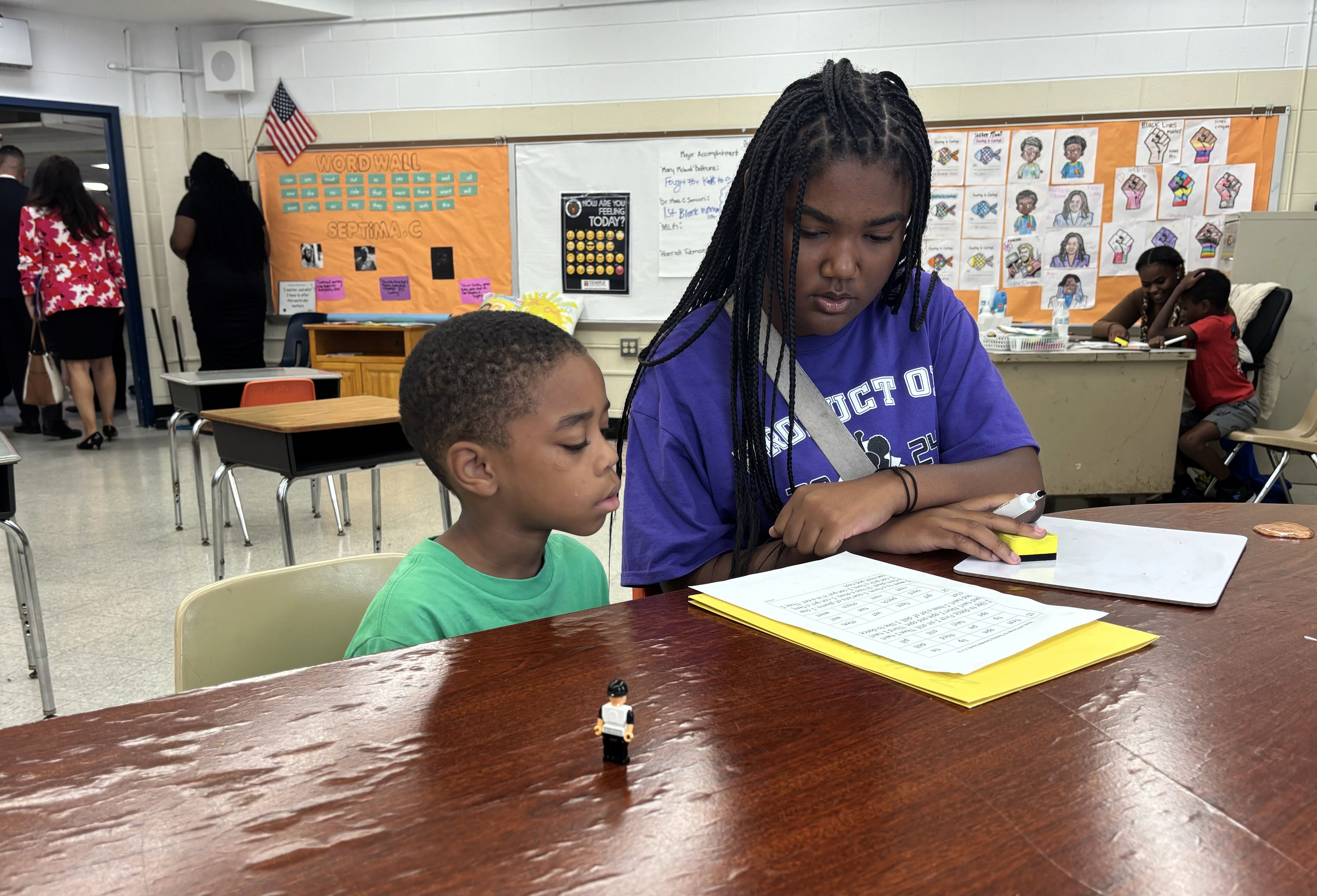
The Third International Conference on Early Childhood Education and Care in Georgia

The Ministry of Education, Science and Youth of Georgia, the Ministry of Education, Culture and Sports of the Autonomous Republic of Adjara, JICA, and the United Nations Children’s Fund (UNICEF) are collaborating with Batumi Shota Rustaveli State University to organize the third International Conference in Georgia on Early Childhood Education and Care. The conference is themed “Inclusive Systems, Services and Practices for Every Child.”
Aim of the Conference
The aim of the conference is threefold:
- To facilitate academic discussion and knowledge sharing on quality, access, and inclusion in early childhood education and care.
- To support the development of pre-service and in-service professional development.
- To raise awareness among the wider public and policymakers about the importance of inclusive early childhood education.
Participants
The two-day conference will bring together various stakeholders including:
- Professors, researchers, and students
- Representatives of the Georgian government and members of parliament
- Representatives of federal and local government
- Members of the diplomatic corps in Georgia
- Representatives of UN agencies and international organizations
- Early childhood education specialists and practitioners
Languages and Translation
The working languages of the conference are Georgian and English. Simultaneous translation between Georgian and English will be provided.
Conference Details
The conference will take place on September 26-27 at Batumi Shota Rustaveli State University.
Thematic Strands
The conference invites participants to submit abstracts related to early childhood education and care for the following thematic strands:
-
Access
This strand focuses on equitable access to early childhood education and care for all young children, with a particular emphasis on marginalized and vulnerable groups. Sub-themes include:
- Policy and Governance
- Service Delivery
- Monitoring and Evaluation
-
Curriculum
This strand explores curriculum development, implementation, and assessment to support inclusion in early childhood education and care. Sub-themes include:
- Curriculum Development/Revision
- Curriculum Implementation
- Assessment
-
Professional Development
This strand focuses on pre-service and in-service training of early childhood education and care professionals. Sub-themes include:
- Pre-service Training
- In-service Training
- Bilingual Education
-
Cross-sectoral Cooperation
This strand highlights the importance of cross-sectoral approaches and coordination to provide integrated services for young children. Sub-themes include:
- Establishing Policies and Coordination Mechanisms
- Developing Integrated Services
- Promoting Collaboration and Partnerships
- Parent and Community Involvement
Submission and Deadlines
The deadline for submission of conference abstracts is May 31, 2024, 18:00 Georgian time. Abstracts should include the title, keywords, and main text.
Each author can submit a maximum of 2 abstracts. Accepted abstracts will not be subject to change after the submission deadline.
The Scientific Committee will review and select the abstracts by June 30, 2024, 18:00 Georgian time. Authors of selected abstracts will be notified.
To submit abstracts, please register here.
Presentations
Authors of selected abstracts should prepare presentations in PowerPoint or other presentation programs. Detailed instructions for submission will be provided to the authors.
The deadline for presenting conference presentations is September 5, 2024, 18:00 Georgian time. Presentations should be sent to ecec@bsu.edu.ge with the subject line “Presentation – Early Education and Care Conference.”
Articles (optional)
The deadline for submission of full papers is October 31, 2024, 18:00 Georgian time. Final articles can be sent to ecec@bsu.edu.ge with the subject line “Article – Early Childhood Education and Care Conference.” Submitted articles will be published as conference proceedings.
Financial Support
Financial support is available for the accommodation costs of selected abstract authors. Only one author per abstract can receive financial support.
Important Dates
- May 31 – Deadline for abstract submission
- September 5 – Deadline for presentation submission
- October 31 – Deadline for article submission (optional)
- September 26-27 – Conference dates
For additional information, please contact ecec@bsu.edu.ge.
SDGs, Targets, and Indicators
1. Which SDGs are addressed or connected to the issues highlighted in the article?
- SDG 4: Quality Education
The article discusses the importance of early childhood education and care, which is directly related to SDG 4, which aims to ensure inclusive and equitable quality education for all.
2. What specific targets under those SDGs can be identified based on the article’s content?
- Target 4.2: By 2030, ensure that all girls and boys have access to quality early childhood development, care, and pre-primary education so that they are ready for primary education.
- Target 4.5: By 2030, eliminate gender disparities in education and ensure equal access to all levels of education and vocational training for the vulnerable, including persons with disabilities, indigenous peoples, and children in vulnerable situations.
The article emphasizes the need for equitable access to early childhood education and care for all children, including those with disabilities, those living in rural areas, and those facing economic hardship. This aligns with Target 4.2 of SDG 4. Additionally, the article mentions the importance of inclusion and equal access to education, which relates to Target 4.5.
3. Are there any indicators mentioned or implied in the article that can be used to measure progress towards the identified targets?
- Indicator 4.2.1: Proportion of children under 5 years of age who are developmentally on track in health, learning, and psychosocial well-being, by sex.
- Indicator 4.5.1: Parity indices (female/male, rural/urban, bottom/top wealth quintile, and others such as disability status, indigenous peoples, and conflict-affected, as data become available) for all education indicators on this list that can be disaggregated.
The article does not explicitly mention specific indicators. However, to measure progress towards Target 4.2, the indicator 4.2.1 can be used to assess the developmental progress of children under 5 years of age. For Target 4.5, the indicator 4.5.1 can be used to measure gender disparities and other inequalities in education.
Table: SDGs, Targets, and Indicators
| SDGs | Targets | Indicators |
|---|---|---|
| SDG 4: Quality Education | Target 4.2: By 2030, ensure that all girls and boys have access to quality early childhood development, care, and pre-primary education so that they are ready for primary education. | Indicator 4.2.1: Proportion of children under 5 years of age who are developmentally on track in health, learning, and psychosocial well-being, by sex. |
| SDG 4: Quality Education | Target 4.5: By 2030, eliminate gender disparities in education and ensure equal access to all levels of education and vocational training for the vulnerable, including persons with disabilities, indigenous peoples, and children in vulnerable situations. | Indicator 4.5.1: Parity indices (female/male, rural/urban, bottom/top wealth quintile, and others such as disability status, indigenous peoples, and conflict-affected, as data become available) for all education indicators on this list that can be disaggregated. |
Copyright: Dive into this article, curated with care by SDG Investors Inc. Our advanced AI technology searches through vast amounts of data to spotlight how we are all moving forward with the Sustainable Development Goals. While we own the rights to this content, we invite you to share it to help spread knowledge and spark action on the SDGs.
Fuente: unicef.org

Join us, as fellow seekers of change, on a transformative journey at https://sdgtalks.ai/welcome, where you can become a member and actively contribute to shaping a brighter future.






